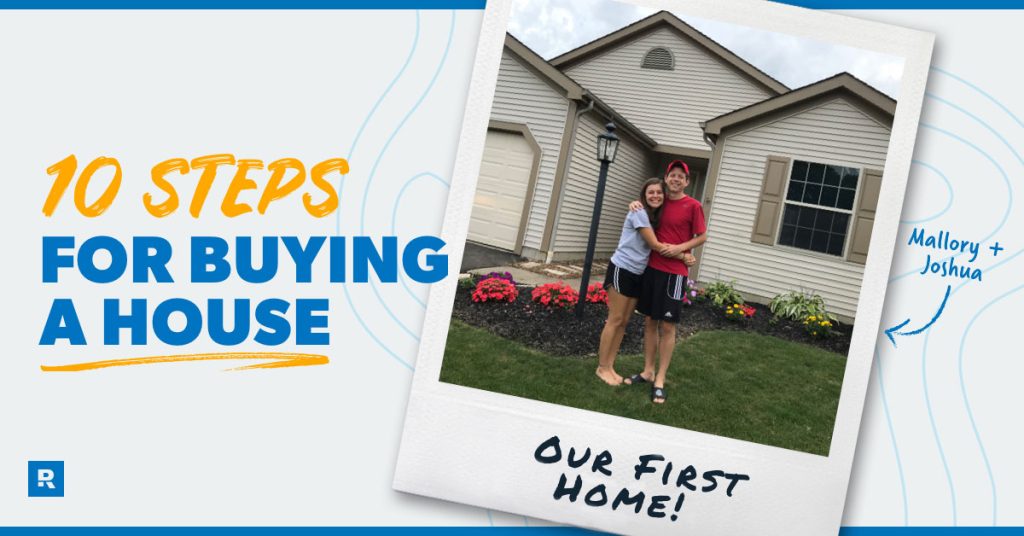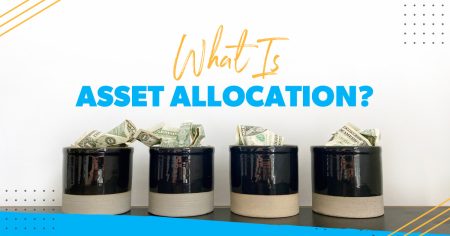Buying a home is a huge deal, you guys. And when you throw an expensive real estate market on top of it, shopping for a home can feel like buckling up for an emotional roller coaster.
But I’m here to share a step-by-step process for how to buy a house in 2024, along with a home-buying checklist to keep track of it all. We’ll go over things like figuring out if you’re ready to buy, saving for a down payment, and getting preapproved for a mortgage. Then we’ll look at what you need to know about finding a real estate agent, putting in offers, and making it all the way to closing day.
10 Steps to Buying a House
Use this step-by-step plan to buy a house the smart way, and download our complete home-buying checklist to follow along with your progress.
- Make sure you’re actually ready to buy.
- Figure out how much house you can afford.
- Save for a down payment.
- Get preapproved for a mortgage.
- Find the right real estate agent.
- Go house hunting.
- Make an offer on a house.
- Get a home inspection and appraisal.
- Be patient getting your mortgage finalized.
- Close on your house.
Step 1: Make sure you’re actually ready to buy.
First things first: Before you jump into the home-buying process, I want you to be debt-free with 3–6 months of expenses saved up in an emergency fund. Think of this money like an insurance policy against life—it’s important to have this safety net when you get ready to make a big purchase like a house.
Picture this: When you buy a home, your landlord is you! That means paying for repairs is your responsibility. So, if the hot water heater springs a leak two weeks after moving in, it’ll be no big deal because you have an emergency fund to cover the repairs.
But when your budget is eaten up by debt payments and you don’t have any savings to fall back on, you might be eating ramen for the rest of the month just to get that water heater fixed. That’s not fun . . . or tasty. With a full emergency fund and no debt draining your monthly budget, an unexpected repair will just be an inconvenience—not the end of the world.
Another thing to think about before buying a house is your stage of life. It doesn’t make sense to buy a house if you plan to move sometime in the next few years—buying and selling a house is an expensive process, and moving too quickly usually means you’ll lose money when you resell the home. This is also one of the reasons I recommend waiting at least a year after getting married before you buy a house.
Here are seven things to check off your list before you’re ready to buy a house:
- You’ve paid off all your debt.
- You’ve saved up a fully funded emergency fund.
- You can afford monthly mortgage payments and home maintenance.
- You have a good down payment.
- You can pay your closing costs and moving expenses with cash.
- You plan on staying put for a while.
- You have a real estate agent you trust.
Still not sure? Take our assessment to see if you’re ready to buy.
Step 2: Figure out how much house you can afford.
If you’re ready to buy, your next step is figuring out your home-buying budget. You should only buy a house only when the monthly payment is no more than 25% of your monthly take-home pay. Anything more than that and you risk being house poor. Sticking to a 25% monthly payment leaves plenty of room in your budget to cover home maintenance and repairs while hitting your other money goals, like saving for retirement.
Find expert agents to help you buy your home.
To be clear, that 25% limit includes principal, interest, property taxes, home insurance and private mortgage insurance (PMI)—and don’t forget to take homeowners association (HOA) fees into consideration. Use our mortgage calculator to try out different home prices within your budget.
Once you know how much you can afford to spend on your new home, stick to that amount. And if you’re buying a home with your spouse, make sure you’re both on the same page about your budget. You don’t want any surprises when it comes to saving for a down payment.
Step 3: Save for a down payment.
Shopping for a home is way more fun than patiently saving up enough money to buy it. (Delayed gratification doesn’t feel fun, but it sure pays off!) But here’s a tip: Don’t give in to the temptation of looking at house listings before you have a solid down payment saved up.
Because guess what could happen? You’ll find a dream home way outside of your budget, and you’ll try to convince yourself your down payment is enough. Don’t do this! A small down payment is a recipe for regret when it comes to buying a home.
How Much Should You Save?
Just like any goal, buying a home the smart way takes planning and preparation. The most time-consuming part of this whole process is saving cash for the down payment, closing costs and other moving expenses. If you’re not sure how much is enough to save, here are some good starting points:
- Down payment: Aim for putting 20% down so you can avoid PMI, a fee added to your monthly mortgage payment to protect your lender in case you default on your loan. If you’re a first-time home buyer, a 5–10% down payment is fine, but it means you’ll be paying PMI a little bit longer.
- Closing costs: You should save around 3% of your home’s purchase price for closing costs, which cover any property taxes, insurance items, or fees charged by your title company and lender. That percentage might vary depending on what area you’re buying in.
- Moving and other expenses: Moving expenses can vary from hundreds to thousands of dollars depending on how much stuff you’re moving and how far away your new home is from your current place. To help with budgeting, call a few moving companies in your area for quotes ahead of time. If you plan to make updates to your home—like painting, installing new carpet, or buying furniture—you’ll need cash for that too.
Ready to get your savings rolling? Make a home-buying budget to plan and track your savings, and you’ll have that down payment before you know it. You’ve got what it takes!
Step 4: Get preapproved for a mortgage.
The best way to buy a home is with cash. But if you do get a mortgage, there’s nothing wrong with that. Getting preapproved is the first step to securing a home loan.
How Do You Get Preapproved?
A mortgage lender can prequalify you to buy a house with a simple conversation about your income, assets and down payment. But getting prequalified isn’t the same as getting preapproved.
Preapproval takes a little more work. A lender will need to take a look at your paycheck stubs, tax returns and bank statements to figure out how big of a mortgage you can afford. But it pays off when you start your home search because a preapproval letter shows that you’re a serious buyer. Sellers like serious buyers!
Which Mortgage Option Is Right for You?
Picking the wrong type of mortgage could turn your biggest asset—your home—into a liability. That’s why getting the right mortgage is so important. Setting your boundaries on the front end makes it easier to find a home you love that’s also in your budget.
So, what type of mortgage should you pick? Here are the two most important guidelines:
- A fixed-rate conventional loan: With this option, your interest rate is secure for the life of the loan, leaving you protected from rising rates. Adjustable-rate mortgages are a terrible idea because you could get stuck paying a much higher interest rate. Also, steer clear of FHA and VA loans because they have high fees attached to them.
- A 15-year term: Your mortgage payment will be higher with a 15-year term than a 30-year term, but you’ll knock out your mortgage in half the time—and save tens of thousands of dollars in interest. That’s a win for me!
Step 5: Find the right real estate agent.
Your home search might start with some online window shopping, but it shouldn’t end there. You can do a lot of research on your own, but you’ll need the help of an expert when it comes to finding and securing your perfect home.
A buyer’s agent can help you navigate the home-buying process. In some cases, they can even help you find a great house before it hits the market, giving you a competitive edge. How’s that for being a smart shopper? And when it comes to making an offer, your agent will negotiate on your behalf so you won’t pay a penny more than you have to.
How Much Does a Buyer’s Agent Cost?
A real estate agent will put your best interests first, and they’re a crucial part of your home-buying team. So, how much should you be prepared to pay for an agent?
How does nothing sound?
That’s right! In most cases, the seller pays your real estate agent’s fees, so using a buyer’s agent is usually free to you. Why wouldn’t you want a pro in your corner as you make your biggest investment?
How to Choose the Best Buyer’s Agent
You may know a lot of real estate agents in your area, but keep in mind that not all agents bring the same knowledge and experience to the table. Don’t work with a friend or family member who’s an amateur just because you want to be nice. A home is the biggest purchase you’ll ever make, and you need a pro on your side.
That means you’ll want to interview a few agents before you hire one. Yep, make them show you why they deserve your business.
When you’re interviewing a real estate agent, don’t settle. A true rock star will have:
- Specific experience helping home buyers like you. What types of home buyers do they normally work with?
- Full-time real estate experience for several years. A part-time agent won’t cut it.
- A history of closing tons of homes each year—more than most other agents in their local area.
- Great communication skills. Do they answer calls, texts and emails promptly?
- A super-serving attitude that makes you feel like you’re their only client.
- Expertise in your local market. How well do they know the area?
- A detailed plan in place to guide you through the next five steps of the process (which we’re about to go over). Run for the hills if you find someone who’s flying by the seat of their pants.
Not sure where to start looking for an agent? We’ve done the work for you with our RamseyTrusted program. These real estate pros will help you reach your goals and focus on getting you the biggest bang for your buck in the home-buying process.
Find a RamseyTrusted pro in your area today.
Step 6: Go house hunting.
After you’ve been preapproved for a mortgage, you’re ready for the fun part: shopping for your perfect home! (This was my favorite part of the process.) To get started, make a list of must-have home features. When you’re buying a home with your spouse, make separate lists and compare. For example, I valued a bright kitchen with lots of counter space, and my husband wanted a big backyard. A nonnegotiable for both of us was a good school district. Knowing what you and your spouse want will help with the selection process.
Once you have a clear picture of the features you both want, share them with your real estate agent and use them as the foundation of your home search. Your agent will help you set realistic expectations and target your search to areas and homes you can afford.
Think Long Term
You might think you’re shopping for your forever home—but remember to shop with resale value in mind because no one knows what the future will bring. A job opportunity in another state or a growing family could change your idea of a forever home.
Here are some house-hunting tips to help you make a smart investment:
- Don’t compromise on location or layout. These are two things you can’t change about the home you buy. No amount of curb appeal can make up for a truly terrible floor plan. And buying a great house in a not-so-great neighborhood is a bad idea. If you don’t love the location or layout, chances are, buyers years from now won’t either.
- Look past the surface. Don’t let a lime-green bathroom keep you from an otherwise great home. Other buyers may not be able to look past those easy-to-fix details (like décor and paint color), which could score you a deal. That lime-green bathroom could mean more green in your pocket.
- Buy the least expensive home in the best neighborhood you can afford. That gives your home’s value room to grow in the future. Keep in mind, future buyers shopping in an inexpensive neighborhood won’t be looking for an expensive home.
- Pay attention to home values in that area. Are they rising or falling? Are businesses booming or closing? You can tell a lot about home values in a neighborhood by what’s happening in the community.
- Research the school districts. Even if you don’t have kids, school districts can be an important factor when you sell. Homes in neighborhoods near great schools generally sell for more money due to high competition—home-buying parents will move heaven and earth to snag those prime locations!
And one more thing: When you start house hunting, you need to be prepared for it to take a while—it could take months before you find a house that’s right for you and your budget. Now, there’s a chance (since you’re so prepared from doing your homework on the front end) that a great agent could find you a house the next day. But you shouldn’t count on that happening. Just make sure you’re ready to go either way.
Hang in there, and don’t compromise on your must-haves.
Step 7: Make an offer on a house.
Once you’ve found the right home, it’s time to get serious. That means submitting your offer and signing a purchase agreement with the sellers.
What’s Included in Your Offer?
Your real estate agent will work with you to submit a solid offer. If you end up in a bidding war with other buyers, keep a cool head and put your best foot forward. Being preapproved with your lender and having a flexible closing date can make your offer stand out.
Your purchase agreement will include other details of the real estate transaction, like:
- Buyer and seller information
- Property address
- Purchase price, lender information and down payment amount
- Earnest money deposit (similar to a security deposit)
- Items to be left with the home (like appliances or furniture)
- Contingencies (more on this later) like the home inspection, appraisal and final mortgage approval
- Closing date
Sometimes agreeing on terms is quick and painless, but it can also be one of the hardest parts of the home-buying process. If your negotiations get intense, remind yourself that both parties want the same thing. The sellers want to sell their house, and you want to buy it!
And remember: Sometimes it pays to compromise on little details if that’ll move the process forward. A good real estate agent will give you advice about when to give in and when to hold firm.
Step 8: Get a home inspection and appraisal.
Once you get to this step, you’ll officially be under contract on your new home. (By the way, under contract means the seller has accepted your offer but nothing is final yet.) That’s something to celebrate. This also means you’re done with the most time-consuming stages of the home-buying process. Cheers to that!
But now that you’re under contract, what should you expect? It normally takes about 30 days to close on a house, so you need to work through the contingencies in the contract.
Contingencies are simply conditions that must be met for the home purchase to take place. They provide a safety net for you to back out of a sale without losing your earnest money if something goes wrong.
Even if you’re in a competitive market, don’t let your emotions lead the charge. You should never skip these contingencies because they offer important protection for your home purchase and your money.
Home Inspection
As a buyer, you have the right to a professional home inspection before you purchase the house, and it would be crazy not to take advantage of that. This is one of the most important precautions you can take before purchasing a home because it keeps you from being blindsided by structural issues or expensive repairs. If the inspection reveals major problems with the home, you can ask the seller to fix the problem, reduce the price, or cancel the contract.
You can also consider getting other pros involved so they can run other tests, like a termite inspection or a radon test, depending on your real estate agent’s advice and the age and condition of the home you’re purchasing. Your new home could look perfect from the outside, but you never know what’s going on under the foundation or in the walls.
Appraisal
If you’re getting a home loan, your lender will require an appraisal to assess the value of the property. An appraisal protects you from paying more than the home’s true value. If the appraisal comes in lower than your offer price, your real estate agent can provide the best guidance for what to do next.
Step 9: Be patient getting your mortgage finalized.
If you did get a mortgage, you’ll have another step before you can close on your home: Getting final loan approval. Prepare to be patient for this part. Your lender will be digging through a ton of your financial details to finalize your mortgage, which could take more than a month to hammer out before your closing date.
Whatever you do, don’t open a credit card, go out and buy a bunch of new furniture on credit (actually, never do this!), or change jobs once you’re under contract. Doing stuff like this affects your debt-to-income ratio and could jeopardize the loan process.
Step 10: Close on your house.
You did it! All the planning, saving, house hunting and waiting are over. The final step in the home-buying process is closing on your new place.
Before you get the keys for your new home and officially call it your own, you have one more sprint ahead of you: paperwork. Bring on the hand cramps . . .
You should receive a copy of your closing documents to review ahead of time so there are no surprises on closing day. Most likely, you’ll pay for:
- Closing costs
- Property taxes
- HOA fees (if this applies to your neighborhood)
- Home insurance
If there are any confusing terms or conditions as you work through the paperwork, don’t be shy about asking questions. This is one of the biggest purchases you’ll ever make, and you should know exactly what you’re signing up for.
Once you sign all the paperwork, it’s time to breathe a sigh of relief. Ahh. You’re officially a homeowner. Congratulations! The home-buying process may not be easy, but having a beautiful new home to call your own is worth it in the end.
You’ve Got This!
Okay, so buying a house is definitely more difficult in 2024 than it was a few years ago thanks to higher prices and interest rates. But here’s the deal, you guys: It is not impossible. If you set a savings goal, get on a budget, and stick to it, you will be able to afford a home before long.
It may take longer than you’d like, but you can do this!
Read the full article here
















